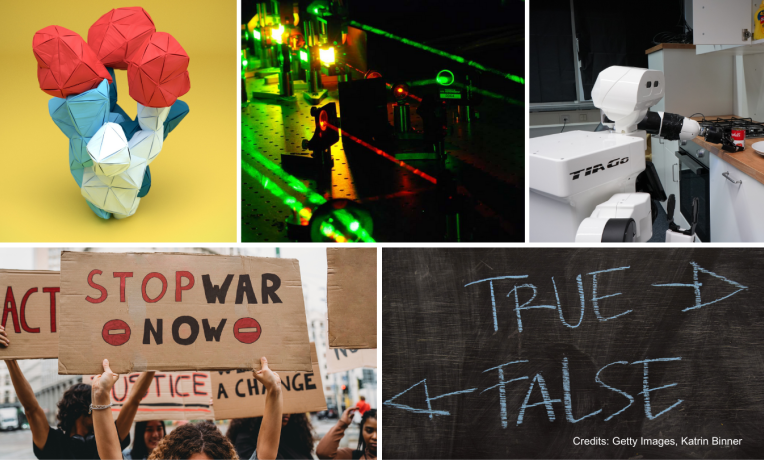ERC grants €780m to emerging science talent in Europe

Iliana Ivanova, Commissioner for Innovation, Research, Culture, Education and Youth, said:
'The European Commission is proud to support the curiosity and passion of our early-career talent under our Horizon Europe programme. The new ERC Starting Grants winners aim to deepen our understanding of the world. Their creativity is vital to finding solutions to some of the most pressing societal challenges. In this call, I am happy to see one of the highest shares of female grantees to date, a trend that I hope will continue. Congratulations to all!'
President of the European Research Council, Prof. Maria Leptin, said:
Empowering researchers early on in their careers is at the heart of the mission of the ERC. I am particularly pleased to welcome UK researchers back to the ERC. They have been sorely missed over the past years. With fifty grants awarded to researchers based in the UK, this influx is good for the research community overall.'
Projects selected for funding
The new ERC grants will support cutting-edge research in a wide range of fields, from life sciences and physical sciences to social sciences and humanities. The funding is part of the EU Horizon Europe programme.
A social scientist in the Czech Republic analyses the crucial role of public opinion in military alliances; a biochemist in the UK delves into how viruses change to infect cells; a researcher in Germany explores how robots can learn to perform human-like tasks in the real world; another scientist based in Spain examines whether advanced laser techniques can help us prevent fires; and a psychologist in the Netherlands investigates (dis)information reaching teenagers.
This is just some of the research that will be conducted by the new grantees. Read more
Facts & figures
The successful candidates proposed to host their projects at universities and research centres in 24 EU Member States and associated countries, including Germany (98 grants), the Netherlands (51), the UK (50) and France (49). They come from Europe and beyond, with 51 nationalities represented, notably Germans (94 researchers), Italians (61), French (44), and Spaniards (36).


This competition attracted 3 474 proposals, which were evaluated by peer review panels of internationally renowned researchers. Overall, 14.2% of the proposals were selected for funding.
44% of these Starting Grants were awarded to female researchers, compared with 43% in 2023 and 39% in 2022. The Starting Grants calls have attracted nearly 62 000 submissions since 2007. During this time, the number of proposals submitted by women has increased from around 30% to around 40%.
Starting Grants amount to €1.5 million per grant for a period of five years. However, additional funds can be made available to cover costs related to moving from a country outside the EU or associated countries, the purchase of major equipment, access to large facilities or major experimental and fieldwork-related costs.
The grants are estimated to create 3 160 jobs within the teams of new grantees.
See more statistics and the full list of winners
About the ERC
The ERC, set up by the European Union in 2007, is the premier European funding organisation for excellent frontier research. It funds creative researchers of any nationality and age, to run projects based across Europe. The ERC offers four core grant schemes: Starting Grants, Consolidator Grants, Advanced Grants and Synergy Grants. With its additional Proof of Concept Grant scheme, the ERC helps grantees to bridge the gap between their pioneering research and early phases of its commercialisation. The ERC is led by an independent governing body, the Scientific Council. Maria Leptin has been the President of the ERC since November 2021. The overall ERC budget from 2021 to 2027 is more than €16 billion, as part of the Horizon Europe programme, under the responsibility of European Commissioner for Innovation, Research, Culture, Education and Youth, Iliana Ivanova.





